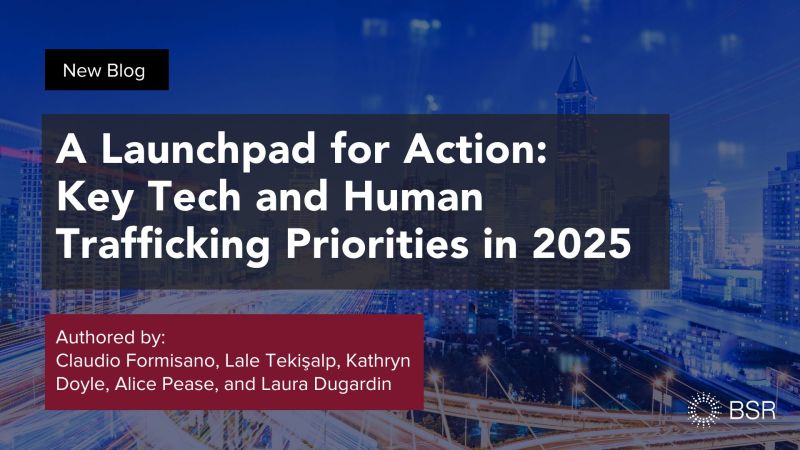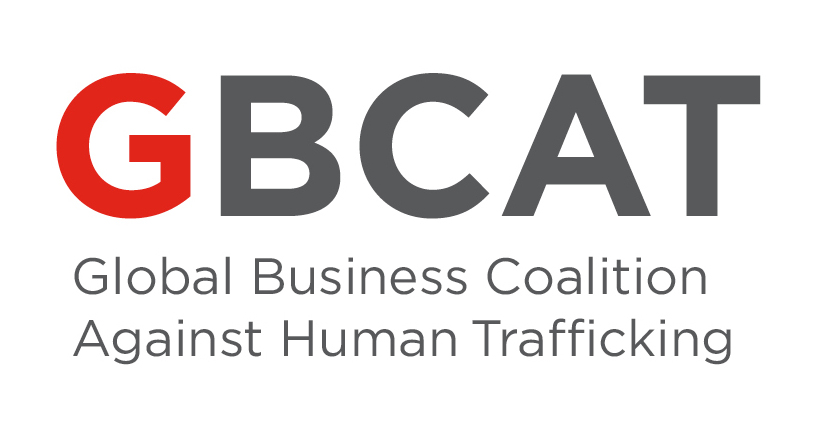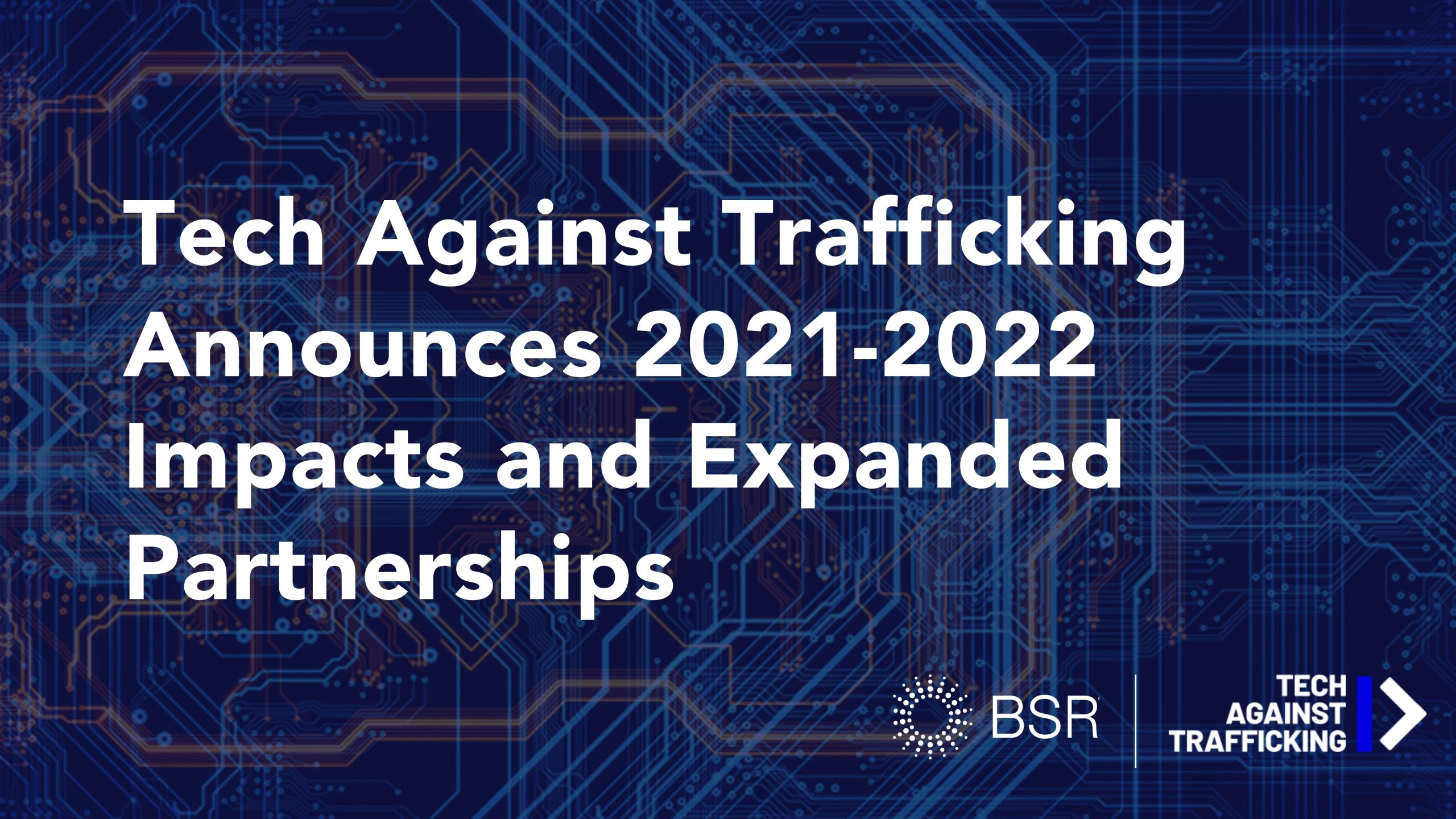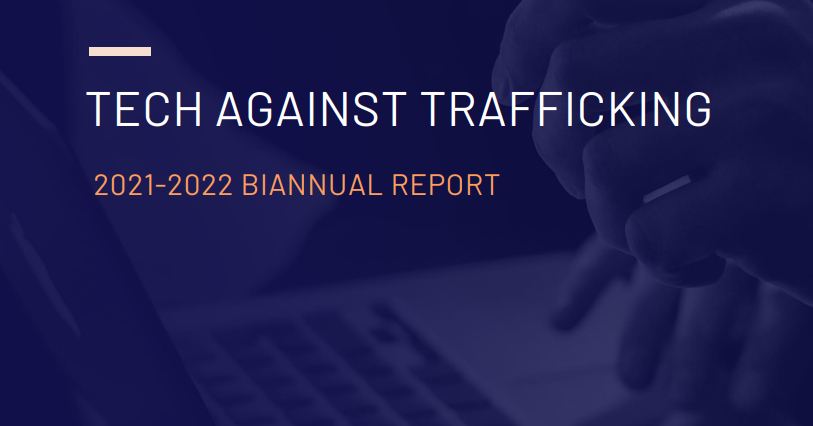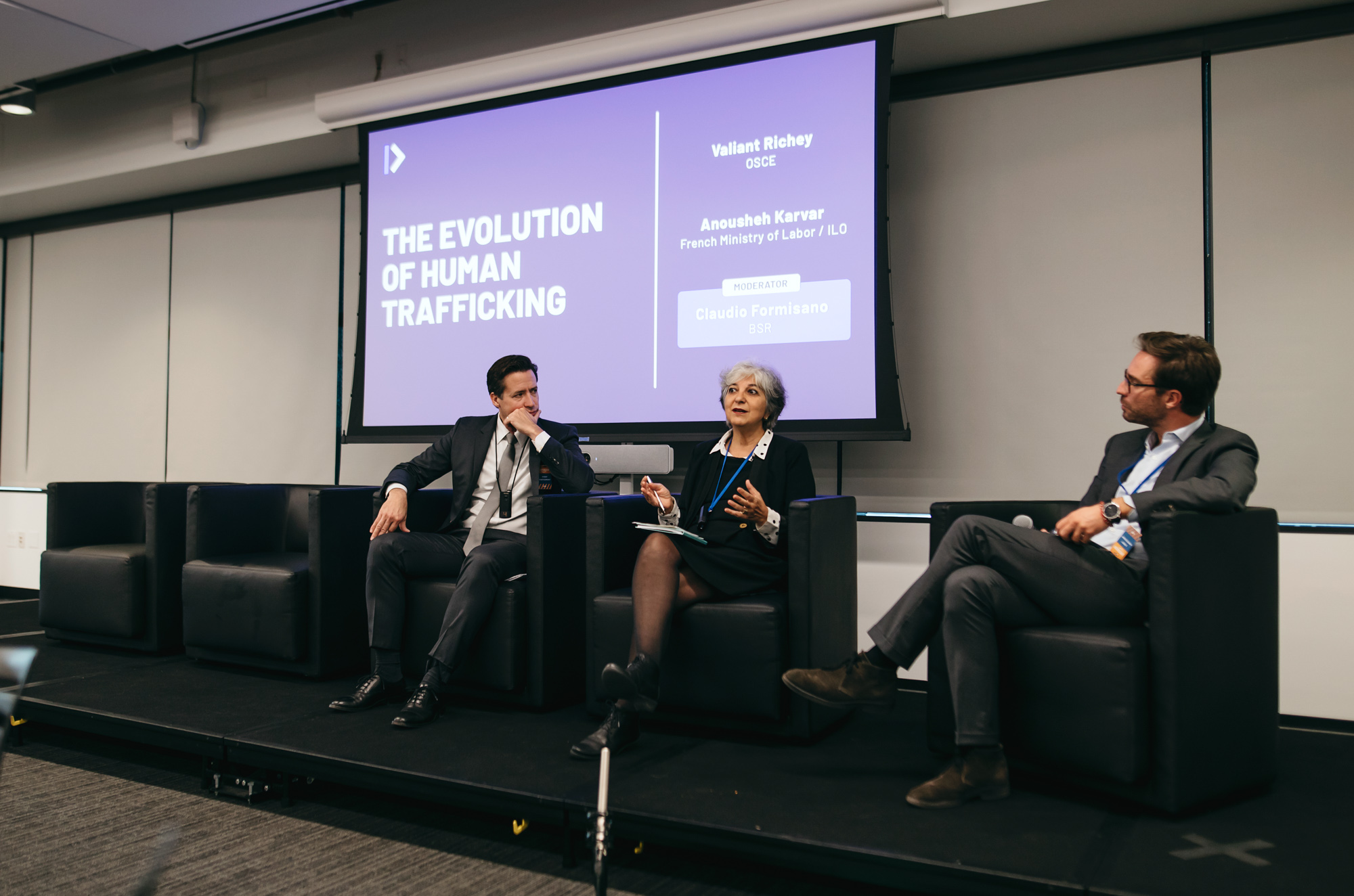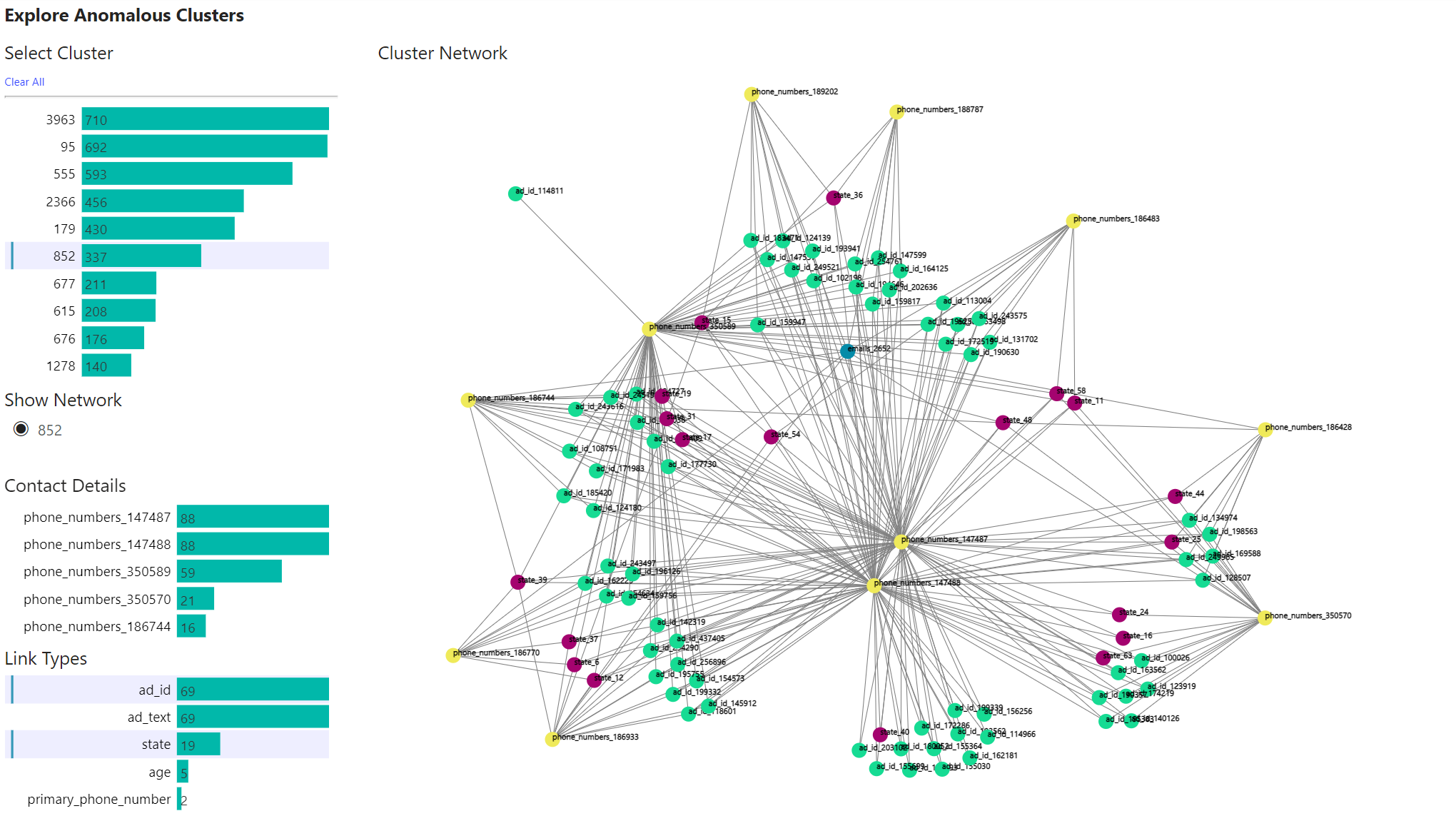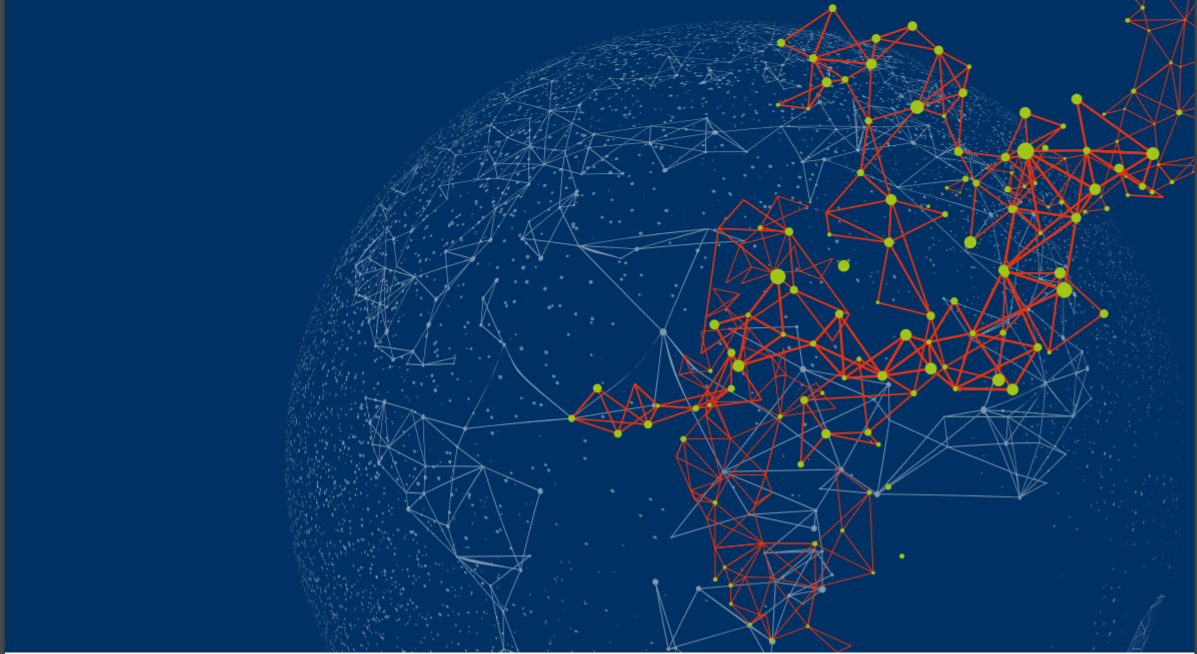Our Mission
Our mission is to work with civil society, academia, technologists, and leaders with lived experience to advance the use of technology to prevent, disrupt, and reduce human trafficking and to address the misuse of technology to facilitate the crime.
Why Tech Against Trafficking?
Human trafficking and forced labor are complex, thriving crimes that impact every country. There are an estimated 50 million people worldwide living in some form of modern slavery. Given the widespread nature of the abuses and the complexity of tackling them, increased engagement by all stakeholders, especially the private sector, is vital.
Through their expertise, capacity for innovation, and global reach, technology companies can play a major role in preventing and disrupting human trafficking and forced labor and supporting individuals with lived experiences. Digital technologies offer opportunities for a step change in tackling this crime. Tech Against Trafficking works to accelerate the development, scale, and impact of these.
At the same time, traffickers are using technology tools and platforms to recruit victims and improve the efficiency of their operations. Tech Against Trafficking works to address the misuse of online platforms to facilitate human trafficking.
Latest News & Insights
Tech Against Trafficking Summit 2025
Tech Against Trafficking Publishes Gap Analysis to Advance Forced Labor Supply Chain Data Standardization
A Launchpad for Action: Key Tech and Human Trafficking Priorities in 2025
Tech Against Trafficking Summit 2024
Building an Effective Data Ecosystem to Address Forced Labor in Global Supply Chains: Key Principles
Tech Against Trafficking Summit: Leveraging Technology to Eradicate Forced Labor
Tech Against Trafficking Joins GBCAT for Expanded Impact and Scale.
Tech Against Trafficking Announces 2021-2022 Impacts and Expanded Partnerships with Google and Meta
Tech Against Trafficking Publishes its 2021-2022 Biannual Impact Report
Tech Against Trafficking Summit: How to Leverage Innovation to Tackle Modern Slavery
Tech Against Trafficking Concludes the Second Accelerator
Tech Against Trafficking Launches Second Accelerator Program
Microsoft Case Study on Tech Against Trafficking
Webinar: Digital Tools to Boost Collaboration and Productivity
The Dual Law of Technology in Trafficking
OSCE, in partnership with Tech Against Trafficking, publishes paper on leveraging technology to fight trafficking
The Effect of COVID-19: Five Impacts on Human Trafficking
Accelerating Toward Data Insights: Tech Against Trafficking Successfully Concludes Its Pilot Accelerator
Scaling Impact: Tech Against Trafficking Launches Accelerator Program
Global Tech Companies, Partners Identify Tools to Fight Human Trafficking
Tech Against Trafficking Summit 2025
Tech Against Trafficking Publishes Gap Analysis to Advance Forced Labor Supply Chain Data Standardization
A Launchpad for Action: Key Tech and Human Trafficking Priorities in 2025
Tech Against Trafficking Summit 2024
Building an Effective Data Ecosystem to Address Forced Labor in Global Supply Chains: Key Principles
Tech Against Trafficking Summit: Leveraging Technology to Eradicate Forced Labor
Tech Against Trafficking Joins GBCAT for Expanded Impact and Scale.
Tech Against Trafficking Announces 2021-2022 Impacts and Expanded Partnerships with Google and Meta
Tech Against Trafficking Publishes its 2021-2022 Biannual Impact Report
Tech Against Trafficking Summit: How to Leverage Innovation to Tackle Modern Slavery
Tech Against Trafficking Concludes the Second Accelerator
Tech Against Trafficking Launches Second Accelerator Program
Microsoft Case Study on Tech Against Trafficking
Webinar: Digital Tools to Boost Collaboration and Productivity
The Dual Law of Technology in Trafficking
OSCE, in partnership with Tech Against Trafficking, publishes paper on leveraging technology to fight trafficking
The Effect of COVID-19: Five Impacts on Human Trafficking
Accelerating Toward Data Insights: Tech Against Trafficking Successfully Concludes Its Pilot Accelerator
Scaling Impact: Tech Against Trafficking Launches Accelerator Program
Global Tech Companies, Partners Identify Tools to Fight Human Trafficking


